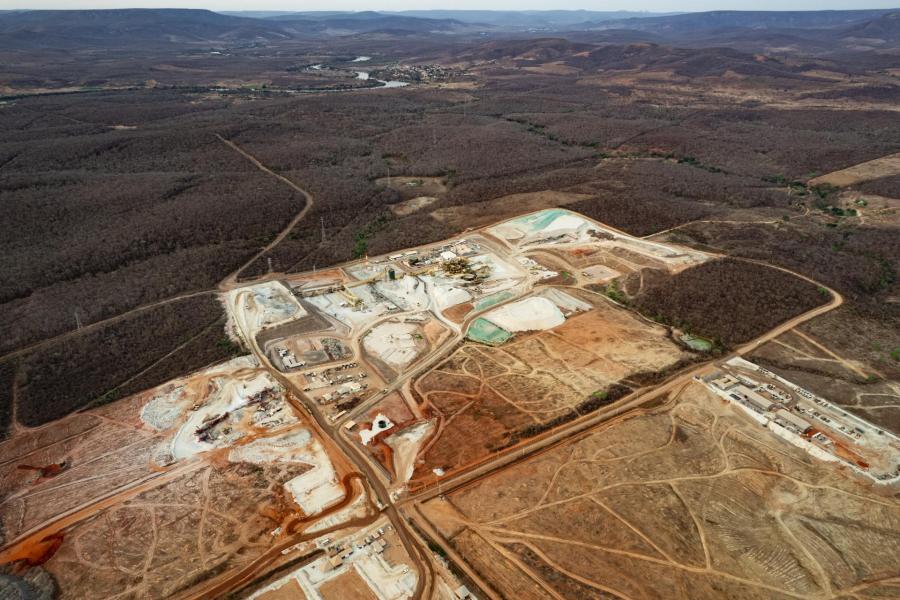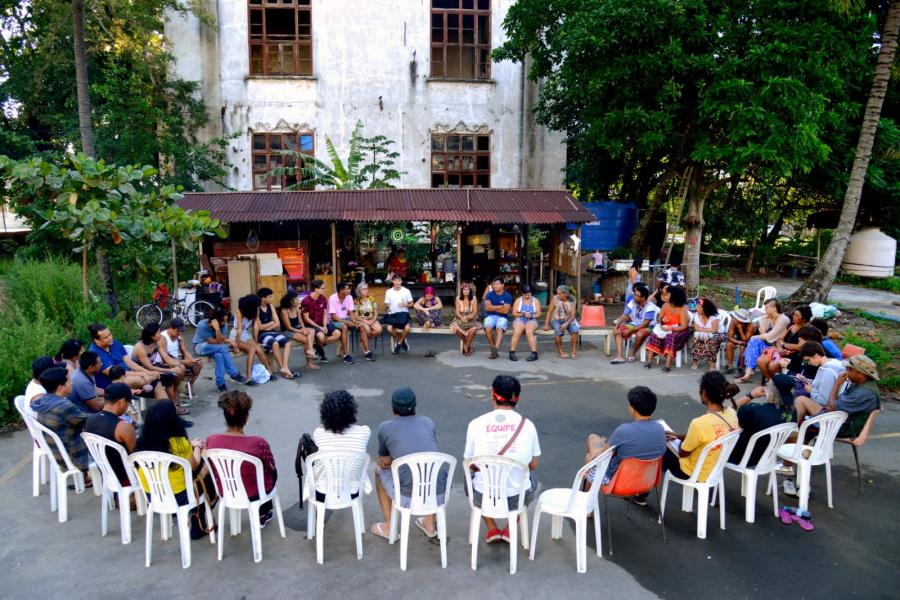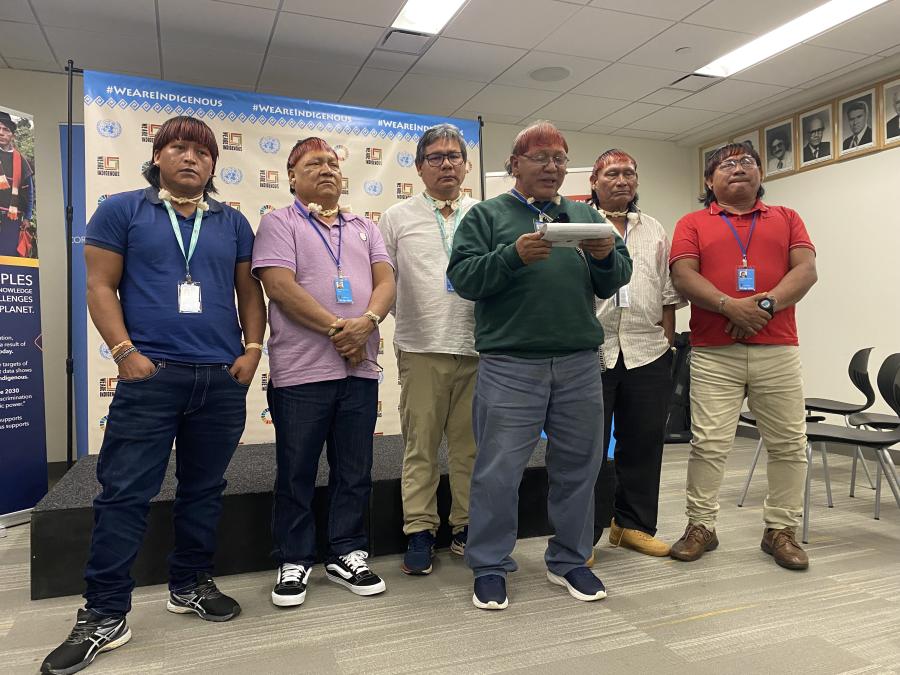
June 10, 2020
Sr. Jair Bolsonaro
President
Praça dos Três Poderes, Palácio do Planalto
Twitter: @jairbolsonaro
Dear Senhor Presidente and Distinguished Sirs,
As Executive Director of Cultural Survival, a U.S.-based nonprofit that supports Indigenous Peoples' self-determination worldwide and advocates for their human and Indigenous rights, I write to express extreme concern over Brazil’s failure to protect the health and safety of the nation’s Indigenous population during the Covid-19 pandemic and strongly urge you to take immediate action to ensure the safety and protection of all Indigenous Peoples and communities, as well as Quilombolas, through the implementation of measures that fully conform to WHO Guidelines and Recommendations. This includes providing resources and protocols to ensure that all SESAI districts and facilities implement procedures that guarantee the proper tracking and treatment of infected individuals and, importantly, guarantee the proper isolation of positive Covid-19 cases and patients undergoing treatment. Failure to isolate infected individuals puts others at high risk and compromises the health of other individuals and communities.
Brazil’s failure to protect and ensure the health and safety of Indigenous populations -- including inhabitants in remote areas of the Amazon as well as those who live in impoverished regions, such as the Northeast and also urban areas, where poverty makes Indigenous Peoples particularly vulnerable -- is irresponsible and grossly negligent. The current procedures and protocols outlined in SESAI (Special Indian Health Service of the Ministry of Health) Covid-19 Contingency Plans do not conform to WHO Guidelines and Recommendations. They are thus irresponsible and grossly negligent. They violate the 1988 Constitution, ILO Convention 169 and the United Nations Declaration on the Rights of Indigenous Peoples to which Brazil is signatory. Brazil’s current policies concerning the health and protection of its Indigenous citizens are nothing less than genocidal.
Brazil’s first Indigenous COVID-19 case was a 20-year old female Kokama health care worker who contracted the virus in early April from a non-native physician. SESAI failed to take proper steps to prevent the virus’s transmission. It spread rapidly in Parque dos Tribos on the outskirts of Manaus that is home to many Indigenous Peoples, including the Tikuna who have been exceptionally hard hit. Despite the courageous work of front line health care professionals -- including technical specialists, nurses, dentists, physicians and many Indigenous health monitors who are working in dangerous conditions -- more than 40 Kokama have died of COVID-19 since the first case was reported in April.
The virus quickly traveled up the Rio Negro to São Gabriel da Cachoeira, also located in Amazonas state, where it has decimated the region’s Indigenous inhabitants. On April 3, 2020 the Secretary of Indigenous Health, Robson Santos da Silva, declared that the Special Indigenous Health Service (SESAI) will no longer serve Indigenous people who reside in urban areas. This leaves Indigenous residents of the town of São Gabriel da Cachoeira, where the majority of residents are Indigenous, as well as other Indigenous urbanites, without health services. Indigenous people do not “become white,” as Mr. da Silva insinuates, simply by residing in cities and towns. By taking this position, SESAI abrogates its responsibility to care for and ensure the health and safety of Brazil’s Indigenous Peoples. SESAI is obligated to serve and care for all Indigenous people, regardless of their place of residence. Failing to do so is a severe breach of the Ministry of Health’s constitutional mandate to provide health care for the nation’s Indigenous Peoples according to Article 196 of the 1988 Constitution and Federal Law nº 9.836/99, which specifies that SESAI must offer a network of services to Indigenous people according to cultural as well as demographic and geographic criteria. SESAI is not absolved from its responsibility of providing health care to Brazil’s urban Indigenous citizens.
Covid-19 is spreading rampantly throughout Brazil’s native populations. According to the Boletim Epidemiológico SESAI/MA dated June 5, 2020, there are 1,737 confirmed Indigenous COVID-19 cases, 70 deaths, and 420 suspected cases. APIB, the Articulação dos Povos Indígenas do Brasil, reports higher numbers. As of May 26, 2020, its National Committee for Indigenous Life and Memory reports 1,900 infections and 160 COVID-19 related Indigenous deaths in more than 71 distinct Indigenous groups across 13 states. The highest concentration of Indigenous COVID-19 deaths is in Amazonas state. According to APIB, the incidence of Indigenous Covid-19 mortality is more than twice that of the national population. This is unacceptable. The high rate of mortality among Brazil’s Indigenous population is the result of gross negligence and the state’s failure to protect the health and safety of the nation’s Indigenous Peoples.
A recently diagnosed COVID-19 case among the Xavante of Mato Grosso illustrates SESAI’s failure to ensure proper isolation of infected Covid-19 cases thus guaranteeing the virus will spread unchecked. Instead of following a protocol that conforms to WHO guidelines and recommendations for the treatment of confirmed COVID-19 cases -- Track, Test, and Treat, where treatment includes isolation to protect co-residents and communities – and in violation of FUNAI policy to make sure that domestic environments are adequate to insure the isolation of confirmed COVID-19 cases, on May 28 health officials in the City of São Felix do Araguaia returned a COVID-19-infected man to the village of Marawãitsédé, where health and sanitation are highly precarious. Hospital officials discharged the infected man with some medications to be overseen by a local Indian Health Service worker and instructions to remain in “domestic isolation.”
In fact, SESAI’s special COVID-19 guidelines are misleading, vague and inadequate for the current situation. Its standard COVID-19 protocol --- “Test and Return Home for domestic isolation”, as outlined, for example, in the March 2020 Contingency Plan for Human Infection by the new Coronavirus (COVID-19) in Indigenous Peoples within the Xavante Special Sanitation District -- is irresponsible and completely out of step with Indigenous realities where isolation is impossible. The policy guarantees that many Indigenous people will be exposed to infection and that many will die prematurely.
Domestic isolation is impossible in most Indigenous communities where, typically, multiple families live together in multigenerational houses that often have no fixed walls, are poorly ventilated and frequently have no inside sanitation or running water. In many Indigenous communities people share and congregate around a common water source which makes regular hand washing and social distancing difficult. Returning infected individuals to communities where living conditions and sanitation are precarious guarantees that infection will spread from household to household.
Family members and people in Indigenous communities who will inevitably bear the responsibility to care for infected individuals are untrained and ill equipped to be COVID-19 caretakers. What few local health professionals there may be (and many communities have none) lack Personal Protective Equipment (PPE). There are no gloves or shields and few face masks in the majority of Indigenous communities in Brazil. Household members cannot possibly protect themselves from contagion while living under the same roof as a COVID-19 patient, not to mention while caring for a sick and infected individual in the same home. And, since local health professionals are often Indigenous health monitors who have little training and lack resources to cope with any serious illness, they are set up to become easy targets for blame when disaster hits. It is unconscionable and inexcusable to put Indigenous health monitors in situations where they lack proper protective equipment and are positioned to take the blame for the government’s lack of attention.
Indigenous people are particularly at risk given high rates of diabetes, tuberculosis, malnutrition, and other health conditions, many which are the result of sustained lack of adequate medical attention and preventive health care in their communities. Their communities lack adequate health care resources; local health care facilities are poorly equipped and often staffed with minimally trained health care workers. Many communities have no Basic Indigenous Health Units (UBSI). UBSIs in those that do are often severely understaffed. In many cases, Indigenous people must travel great distances to obtain medical attention. For example, according to Xavante PC-DSEI (COVID-19 Contingency Plan for the Xavante Special Indigenous Sanitary District ), only 8.5% of Xavante communities have UBSIs. OPAN’s recently released Technical Report on the Vulnerability of Xavante to the COVID-19 Pandemic shows that there are 670 Xavante for each UBSI compared to the Xingu, where each UBSI is responsible for almost half that number (348). The DSEI of Cuiabá – that serves Boe Bororo, Balatiponé Umutina, Kurã Bakari, Miki, Manoki, Enawene Nawe, Nmbikwara, Guaté, Chiquitano and Hailit Paresi - has an even lower ratio: 170 people per UBSI . This means that 91.5% of the Xavante population has extremely limited access to health monitoring and the most minimal care.
Brazil’s current COVID-19 policies and protocols for Indigenous People are criminal and genocidal. They undermine all institutions (FUNAI, SESAI, IBAMA - Brazil’s Institute of Environmental and Renewable Natural Resources) whose responsibility is to respect, protect, and fulfill the rights of Indigenous Peoples. Brazil’s policies also violate Indigenous Peoples’ rights to health and safety as guaranteed by the national Constitution (article 231), as well as ILO Convention 169 and the United Nations Declaration on the Rights of Indigenous Peoples.
Cultural Survival strongly urges that Brazil immediately implement protocols that conform to WHO guidelines and recommendations. Brazil must provide SESAI with resources so that it can:
- Equip SESAI to set up quarantine facilities away from Indigenous residences
- Provide trained medical professionals to staff these facilities
- Increase the number of trained medical health professionals attending Indigenous areas and Indigenous populations in urban environments
- Supply proper Personal Protective Equipment (PPE) to health professionals working with Indigenous Peoples and in quarantine facilities
- Provide masks, gloves and other PPE to local communities
- Supply Indigenous communities with disinfecting supplies so people may follow sanitation guidelines.
- Institute regular and repeated Covid-19 testing of the Indigenous Population at their request and with their consent.
- Increase the number of Indigenous Health Clinics dedicated specifically to the pandemic
- In addition, working with consent of Indigenous communities, FUNAI must also block entrances and exits to and from Indigenous Territories, criminalize and prosecute the entry of persons into Indigenous Territories.
Taking these measures is urgent and necessary to halt the spread of this lethal virus and protect the lives of Brazil’s Indigenous Peoples.
To:
Sr. Eduardo Pazuello
Acting Minister of Health, Esplanada dos Ministérios,
Email: siops@saude.gov.br
Sr. André Luiz de Almeida Mendonça
Minister of Justice, Esplanada dos Ministérios
E-mail: chefiadegabinete@mj.gov.br
Antônio Augusto Brandão de Aras
Procurador Geral da República, Federal Public Ministry
E-mail: pgr-imprensa@mpf.mp.br , prmt-ascom@mpf.mp.br
Sr. Marcelo, Augusto Xavier da Silva
President of FUNAI
E-mail: presidencia@funai.gov.br
Sr. Robson Santos da Silva
Secretaria Especial de Saúde Indígena
Ministério da Saúde
E-mail: sesai@saude.gov.br
Sr. Rodrigo Maia
President of the Chamber of Deputies
Sr. Gustavo Freire Borges
FUNAI Regional Coordinator
E-mail: funai.cr.cld@gmail.com



